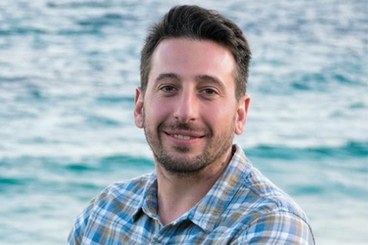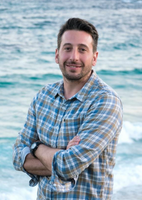Understanding and building algal bio-factories with synthetic biology
Seminario del Prof Michele Fabris (University of Southern Denmark)

-
Data: 02 MARZO 2023 dalle 14:00 alle 16:00
-
Luogo: Aula magna, secondo piano dell’Istituto Tecnico Agrario Statale - ITAS "Luigi Perdisa", Via dell'Agricoltura 5, Ravenna
-
Tipo: Seminario
Understanding and building algal bio- factories with synthetic biology
Dr Michele Fabris
Associate Professor – SDU Biotechnology Faculty of Engineering, University of Southern Denmark (Odense, Denmark)
Talk content
Microalgae are one of the most ecologically relevant groups of organisms on Earth, as they centrally contribute to primary production, biogeochemical cycles and carbon dioxide sequestration. Microalgae are also ideal, light-powered biofactories, as they only require sunlight, (sea)water and inorganic nutrients to generate biomass and bioproducts. However, the biochemistry of microalgae is far from being understood and so far only natural isolates are currently industrially exploited, limitedly to products that they naturally synthetize. Synthetic biology has the intertwined potential to unlock unexplored unique traits, and to re-program microalgae into efficient biofactories for numerous applications, replacing fossil-based and unsustainable industrial production. In my talk, I will describe how bioinformatics, molecular biology, functional genetics and synthetic biology have been employed to learn and engineer traits in microalgae, and what further challenges need to be tackled to generate designer industrial strains.

Bio
Michele Fabris leads the “Algae synthetic biology and biotechnology” research group at the University of Southern Denmark (Odense, Denmark), focused on deciphering the biochemical and genetic potential of microalgae and using it to generate new highly specialized algae strains for the production of high value molecules, using synthetic biology and genetic engineering. His research interests include molecular biology and metabolic processes in industrially and environmentally relevant algae species.
Michele obtained a master's degree in Cellular and Molecular Biology from the University of Bologna in 2008 and in 2013 a PhD from the VIB Center for Plant Systems Biology and Ghent University (Ghent, Belgium). Subsequently, he worked as Research Fellow at the University of Technology Sydney (Australia) and the CSIRO Synthetic Biology Future Science Platform, where he worked on metabolic traits of industrial interest in microalgae and on and the exploration of their suitability for molecular biotechnology and synthetic biology applications.